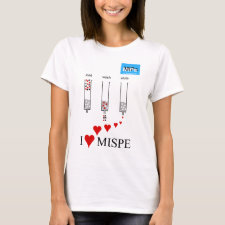
Authors: Li WX, Chen N, Zhu Y, Shou D, Zhi MY, Zeng XQ
Article Title: A nanocomposite consisting of an amorphous seed and a molecularly imprinted covalent organic framework shell for extraction and HPLC determination of nonsteroidal anti-inflammatory drugs.
Publication date: 2019
Journal: Microchimica Acta
Volume: 186
Issue: (2)
Article Number: 76.
DOI: 10.1007/s00604-018-3187-6
Abstract: A novel nanocomposite consisting of an amorphous seed and a molecularly imprinted covalent organic framework shell was prepared via a heterogeneous nucleation and growth method. By using ibuprofen as the dummy template, a molecularly imprinted covalent organic framework (MICOF) with a large surface area was prepared from 1,3,5-triformylbenzene and 4,4'-diaminobiphenyl. It was placed on the surface of monodisperse amorphous seeds. Owing to strong π-interaction, the MICOF@SiO2 nanocomposite displays fast binding kinetics, large adsorption capacities and selectivity for nonsteroidal anti-inflammatory drugs (NSAIDs). Following desorption from the MICOF@SiO2 with methanol containing 1% ammonium hydroxide, the NSAIDs ketoprofen, ibuprofen, diclofenac, indomethacin, flurbiprofen and naproxen were quantified by HPLC with UV detection. Under optimized conditions, the method exhibits good linearity within the range of 0.002-1.0 μg mL-1, low limits of detection (0.38-2.92 μg L-1), and acceptable repeatability. The recoveries of NSAIDs at three spiking levels range from 77 to 112%, and the RSDs are <9.4%. The method was successfully applied to the analysis of NSAIDs in spiked environmental water samples
Template and target information: dummy template, ibuprofen, NSAIDs, ketoprofen, ibuprofen, diclofenac, indomethacin, flurbiprofen, naproxen
Author keywords: Heterogeneous nucleation and growth method, π-Interaction, 1,3,5-triformylbenzene, 4,4'-diaminobiphenyl, Amorphous seed



Join the Society for Molecular Imprinting

New items RSS feed
Sign-up for e-mail updates:
Choose between receiving an occasional newsletter or more frequent e-mail alerts.
Click here to go to the sign-up page.
Is your name elemental or peptidic? Enter your name and find out by clicking either of the buttons below!
Other products you may like:
 MIPdatabase
MIPdatabase









